BALTIMORE, MD – A baby female chimpanzee born at the Oklahoma City Zoo on August 28, 2020, has moved to The Maryland Zoo to be hand-reared and paired with a surrogate chimp mother after her birth mother was unable to care for her properly. “Hand-raising a baby chimp is a huge undertaking and not one to be taken lightly,” said Erin Grimm, mammal collection and conservation manager for the Zoo. “However, we are always happy to help our zoo colleagues, especially when it is in the best interest of the animal in question. This little chimp will be a welcome addition to our troop.”
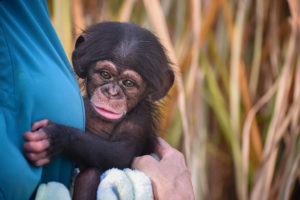
The infant, who has yet to be named, was born weighing approximately four pounds to first-time mother “Nia,” a 12-year-old chimpanzee. “The birth seemed to be without complication and the baby appeared to be healthy,” stated Pace Frank, lead primate caretaker at the Oklahoma City Zoo. “However, it was quickly apparent that Nia was not adapting to motherhood appropriately and we made the difficult decision to remove and hand-rear the baby while searching for a suitable home with a nurturing surrogate.”
For several weeks, Oklahoma City Zoo staff cared for the infant 24/7 in a behind-the-scenes area while working with the Association of Zoos & Aquarium’s (AZA) Chimpanzee Species Survival Plan (SSP), to determine a new home for her where she could be matched with a surrogate chimpanzee mother and raised within their troop.
“It’s very important for chimpanzees to be raised by their own species. As humans, we can’t give an infant chimp all it needs to develop into a well-functioning member of a group,” said Judy McAuliffe, curator of primates at Houston Zoo and Chimp SSP Program Leader. “Maryland Zoo has had tremendous success introducing infants to foster mothers who can raise them as part of an integrated group, which is absolutely the best thing for the infant.”
The chimp baby will bring the Maryland Zoo’s chimpanzee troop up to fifteen, which includes one-year-old Lola and ten-month-old Violet. “As this new baby is integrated into the troop, she will have two companions to play with, which is essential to her development,” continued Grimm. “It’s also important to note that chimp Abby is a proven surrogate mother who has helped raise several other baby chimps without mothers. We are confident in Abby’s mothering skills to help this little one become a solid part of this troop.”
Moving animals from one accredited zoo to another is routinely done, but there is nothing routine about providing transportation for a month-old-baby chimpanzee. “A baby chimp is held by its mother 24/7 and is completely reliant on her to not only nurse, but also to learn how to be a chimp,” said Grimm. “We worked out a travel plan with our colleagues in Oklahoma City to drive and meet halfway between our zoos so we could pick up this little chimp and provide her with constant care the entire way from Oklahoma to Maryland.”
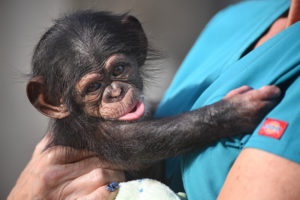
The chimp arrived at the Zoo in late September and is being cared for by the Chimp Forest Animal Care team who work in three shifts around the clock to provide her constant care. “She drinks baby formula every three hours, sleeps, and gets a little bit of playtime to help strengthen her muscles,” continued Grimm. “We also wear a shirt and blanket that have fringe material sewn on that helps the baby learn to grip.”
“The nursey is set up in the staff observation room so that the troop can see the baby and start to learn who she is,” noted Grimm. “It is also important for the baby to hear chimp noises and be exposed to all their sounds and smells as early as possible to help with the transition to the surrogate mom and normal chimp life when she is ready.”
The process of integrating a baby chimp into a social group is neither easy nor quick. Chimpanzees live in complex social groups with a strict hierarchical structure. “Chimps are smart, aggressive and powerful,” said Grimm. “At approximately 4 to 6-months of age, the baby will likely be strong enough to be introduced to Abby, then gradually the other chimps. Infants are dependent upon their mothers for at least five years, so we will work carefully with Abby to ensure a proper transition to troop life.”
“Our staff is committed to being here day and night to care for her; it can be stressful as well as rewarding, not to mention expensive,” concluded Grimm. “But we can’t wait to see her develop and to share her milestones with the public from behind-the-scenes at Chimp Forest.”
Chimpanzees are classified as endangered on the International Union for the Conservation of Nature’s (IUCN) Red List. One of the greatest threats to the wild chimpanzees is loss of habitat, the African forest, from commercial logging, agriculture and fires. Poaching and disease also put the wild population at risk.

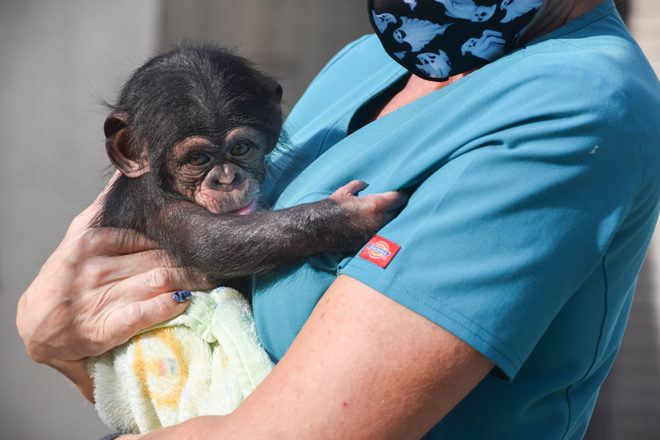
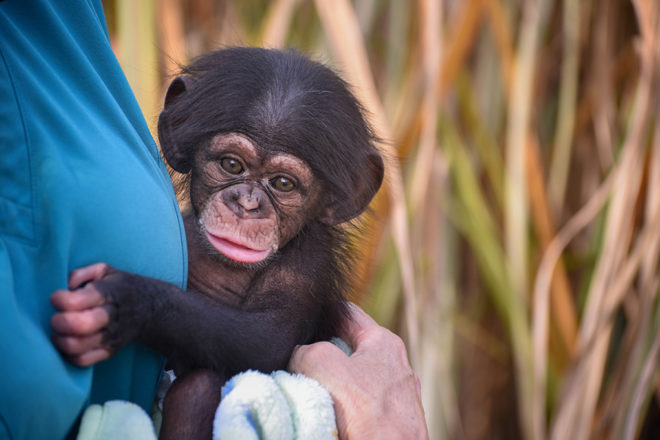
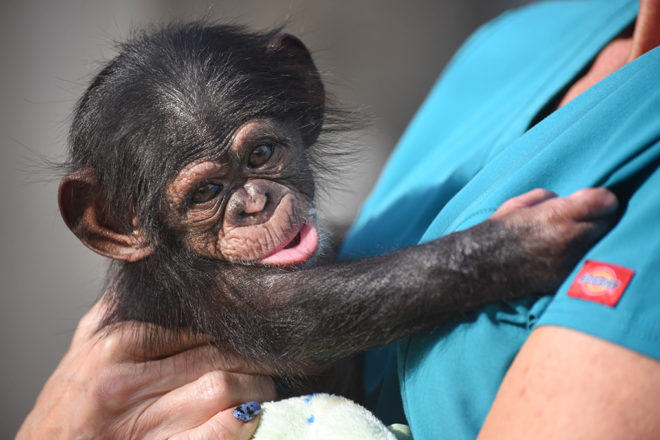
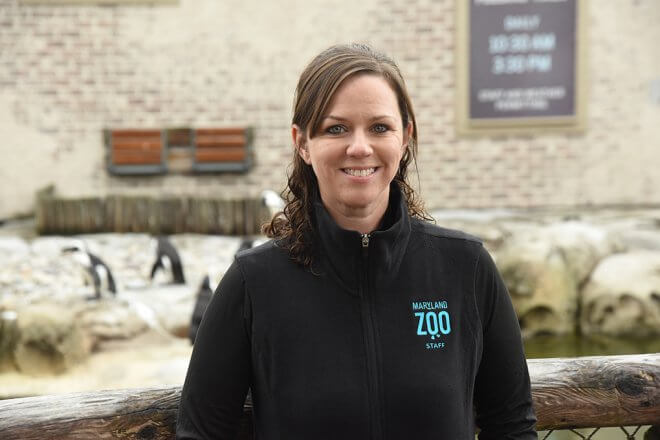
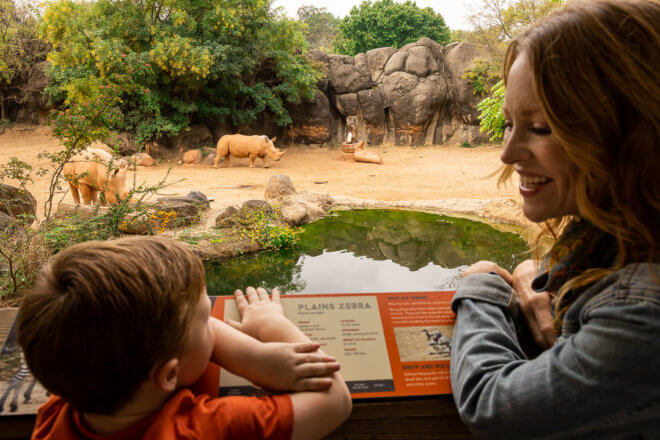
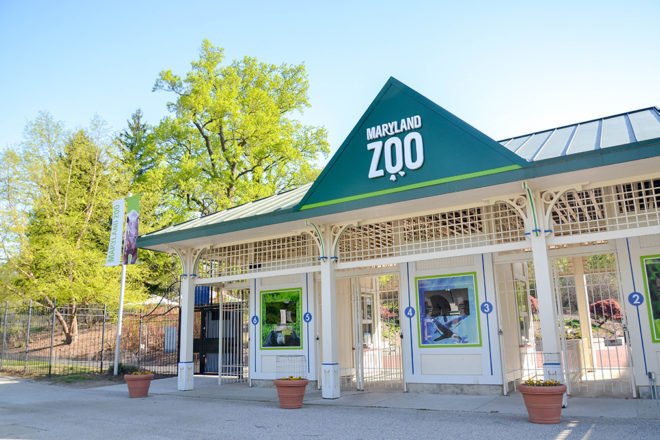
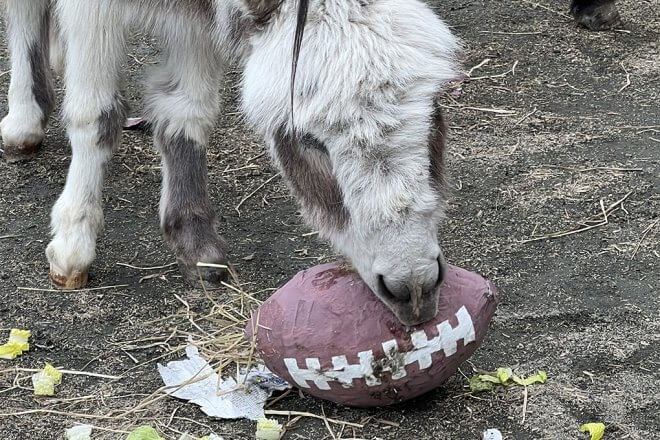
Share this article